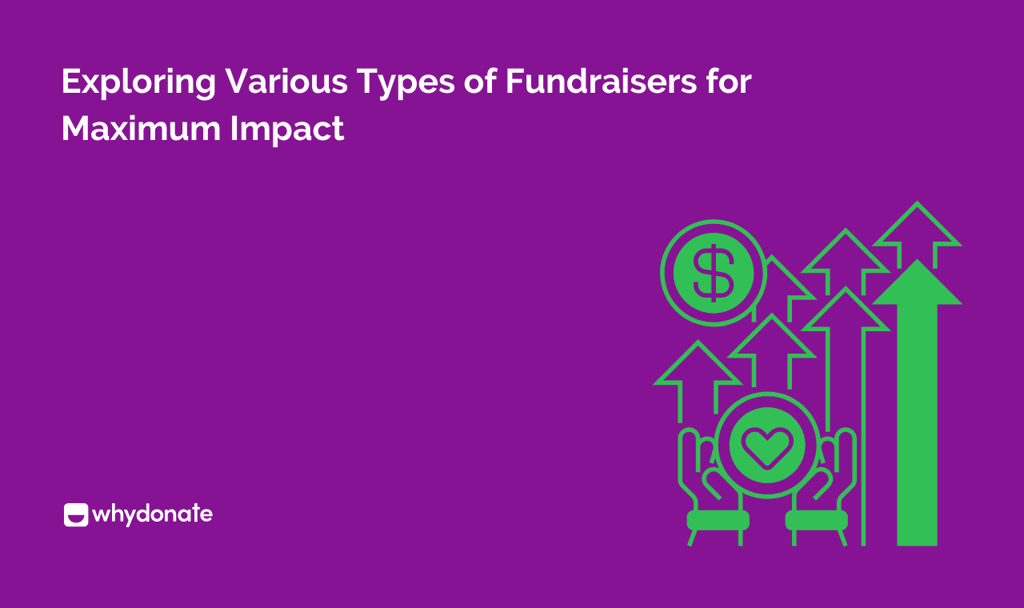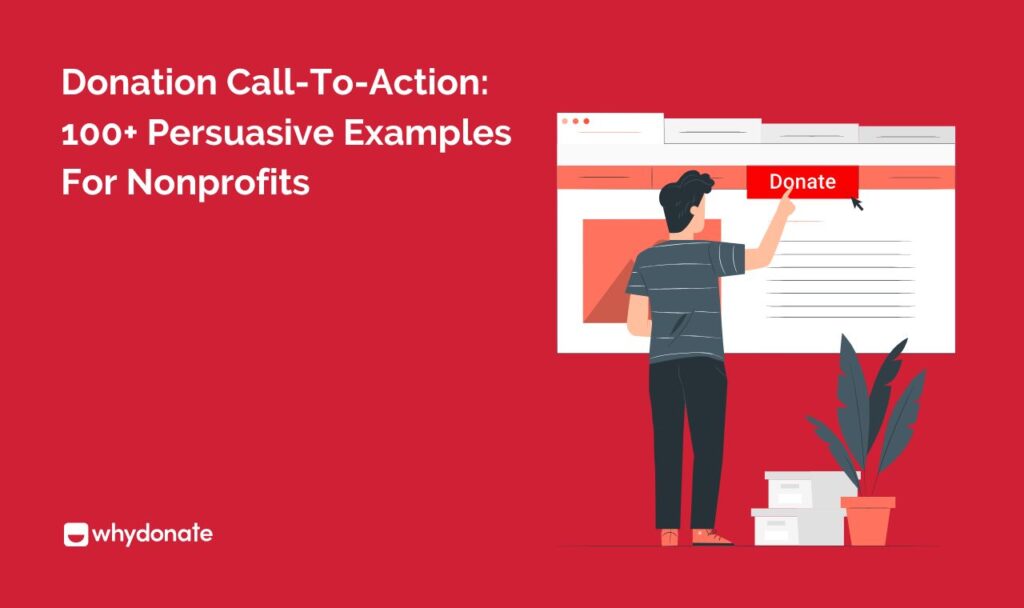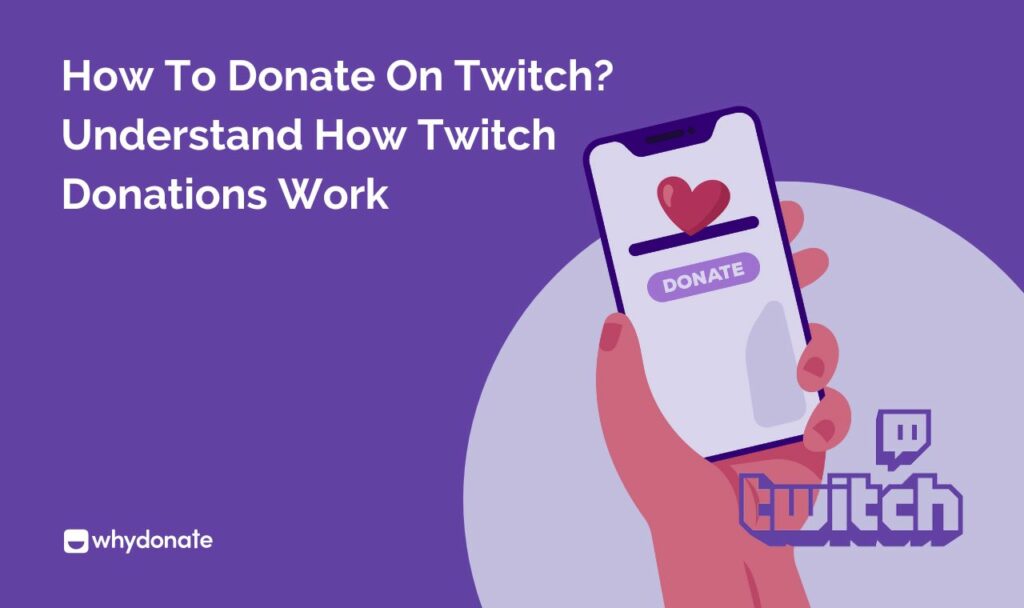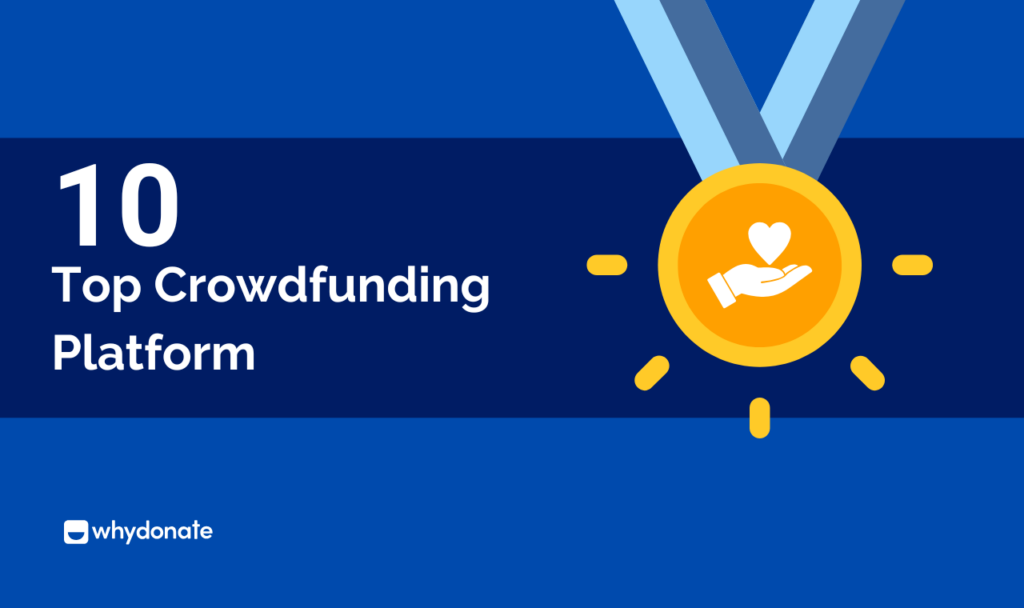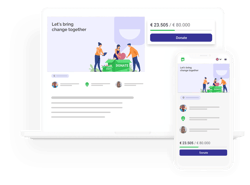Fundraising plays a crucial role in supporting various causes and organisations. Whether you’re a nonprofit, school, or community group, understanding different types of fundraisers can help you maximise your impact and reach your financial goals. From traditional methods to innovative approaches, there’s a wide array of fundraising options to explore, each with its own unique advantages and challenges.
In this article, you’ll discover various types of fundraisers that can boost your fundraising efforts. We’ll delve into product-based fundraising, challenge-based events, seasonal campaigns, and digital fundraising strategies. You’ll also learn about the WhyDonate crowdfunding platform, a user-friendly tool to kickstart your fundraising journey. By the end, you’ll have a comprehensive understanding of the best types of fundraisers for nonprofits and other organisations, empowering you to choose the most effective approach for your cause.
Understanding types of fundraisers can empower you to create a strong campaign and gather funds effectively. Start your free fundraiser now!
Table of Contents
5 Types of Fundraisers That You Need To Understand for Your Next Campaign
1. Product-Based Fundraising
Product-based fundraising is a powerful way to boost your nonprofit’s visibility and financial support. By selling items like snacks, t-shirts, or gift wraps, you can attract new donors and strengthen relationships with current supporters. This method offers more than just incentives; it’s an opportunity to extend your reach, especially when taken online.
To maximise your product fundraiser’s impact, focus on effective marketing. Utilise various communication channels such as email, social media, newsletters, and your website to reach more potential donors. Remember, even though supporters are purchasing products, they’re still making a donation. It’s crucial to thank them properly, as this can increase donor retention and lay the foundation for new relationships.
When choosing products, consider your organisation’s values and ensure they align with your cause. Be cautious of fundraising programs requiring large upfront deposits if you’re unsure of the outcome. With careful planning and execution, product-based fundraising can be a significant revenue generator for your nonprofit.
2. Challenge-Based Fundraising Events

Different types of fundraising events can be used to engage supporters and raise funds. Challenge-based fundraising events have become increasingly popular, offering unique ways to engage supporters and raise funds. These events often involve physical activities or personal challenges that participants undertake to support a cause. From marathons to skydiving, these events not only raise money but also create memorable experiences for participants.
When planning a challenge event, consider the following:
1. Choose diverse activities: Offer options like marathon DJ sets, roller skating, or nail art sessions to appeal to different interests.
2. Assess risks: Conduct a thorough risk assessment and ensure participants have adequate insurance coverage.
3. Be transparent: Clearly communicate how funds raised will be used, including any costs associated with the event itself.
4. Leverage social media: Use platforms to promote your event and engage with potential participants and donors.
3. Seasonal and Holiday Fundraisers

Seasonal fundraising offers a unique opportunity to engage donors throughout the year. You can leverage holidays and changing seasons to create themed campaigns that resonate with supporters. For example, host a winter quiz night at a local pub or organise a spring picnic in the park. Summer barbecues and autumn pumpkin carving contests are also popular options.
To maximise your seasonal fundraising efforts, consider using WhyDonate’s crowdfunding platform. It provides an easy-to-use interface for creating and managing your campaigns, allowing you to reach a wider audience and track your progress effectively. Remember, the last quarter of the year is particularly crucial, with 31% of annual donations made in December alone. Plan your holiday campaigns strategically to tap into this giving spirit.
Find more about seasonal and holiday fundraising ideas from our reading materials.
- Christmas Fundraising Ideas
- Halloween Fundraising Ideas
- End Of Year Giving Campaign
- Winter Fundraising Ideas
- Summer Fundraising Ideas
- Spring Fundraising Ideas
4. Social Media and Digital Fundraising Campaigns

Social media has revolutionised fundraising, transforming platforms into powerful tools for engaging supporters and raising funds. With 55% of users who engage with nonprofits taking action and 59% of those donating money, it’s clear that digital fundraising is a game-changer. You can leverage platforms like Facebook, Twitter, and Instagram to share your mission, attract donors, and increase your organisation’s visibility.
To maximise your digital fundraising efforts, consider using WhyDonate’s crowdfunding platform. It offers an easy-to-use interface for creating and managing campaigns, allowing you to reach a wider audience and track progress effectively. With WhyDonate, you can harness the power of social media to boost your fundraising impact and achieve your goals more efficiently.
Find top Social Media Fundraising Ideas for your next campaign.
5. Government Grants
Government grants are a valuable source of funding for many organisations, particularly nonprofits, educational institutions, and research facilities. These grants provide financial support for specific projects, programs, or initiatives that align with government priorities and public interests.
While government grants can be a significant source of funding, organisations should view them as part of a diverse fundraising portfolio. Combining grant funding with other fundraising methods ensures financial stability and reduces dependence on a single source of income.
Learn more about grants from our dedicated blogs.
Choose WhyDonate to Start a Fundraiser
WhyDonate is one of the top crowdfunding platforms that not only caters to all types of fundraising for personal causes but also all kinds of organisational funding needs. Starting a fundraiser at WhyDonate is absolutely free. Not only is the platform affordable, but it is also very simple to use. The platform offers its services in more than 117 countries and more than 19 languages. It has exciting features like custom branding, immediate payouts, offline donations, customised donation forms, donation receipts, etc., making the lives of fundraiser creators and donors much easier.
Register for free and use the perks right away!
Conclusion
Fundraising offers a diverse array of options to support various causes and organisations. From product-based initiatives to challenge events, seasonal campaigns, and digital strategies, each approach has its unique advantages. The key lies in choosing the method that aligns best with your organisation’s goals and values. WhyDonate’s crowdfunding platform stands out as a versatile tool, making it easier to kickstart and manage fundraising efforts across different types of campaigns.
As fundraising continues to change, the importance of flexibility and creativity cannot be overstated. By mixing traditional methods with new ideas and using platforms like WhyDonate, organisations can boost their impact and reach their financial goals more effectively. Remember, the heart of successful fundraising lies not just in the method chosen, but in the genuine connection made with supporters and the clear communication of the cause’s significance.
FAQs
1. What types of fundraisers yield the highest profits?
Some of the most profitable fundraising activities include matching gift drives, car washes, drive-in movies, text-to-give campaigns, t-shirt sales, dance-a-thons, picnics or barbeques, and various contest-based fundraisers.
2. Which fundraising method is considered the most effective?
Effective fundraising methods include selling branded merchandise to establish a brand identity, organising auctions, soliciting legacy gifts, and engaging in social media challenges.
3. What are the four primary categories of fundraising?
The main categories of fundraising are: Individual Giving, which encompasses one-time and recurring donations from individuals, as well as major gifts; Corporate Sponsorship, which involves financial contributions from businesses; Grantmaking, which includes funds from governmental and private foundations; and Events, which are organized activities designed to raise money.
4. How can one enhance the effectiveness of fundraising efforts?
To maximise fundraising effectiveness, consider expanding your outreach, prioritising handwritten letters over emails, setting ambitious financial goals, utilising top online fundraising tools, sharing compelling personal stories, engaging in face-to-face interactions, personalising communications with your name, and emphasising urgent deadlines.
